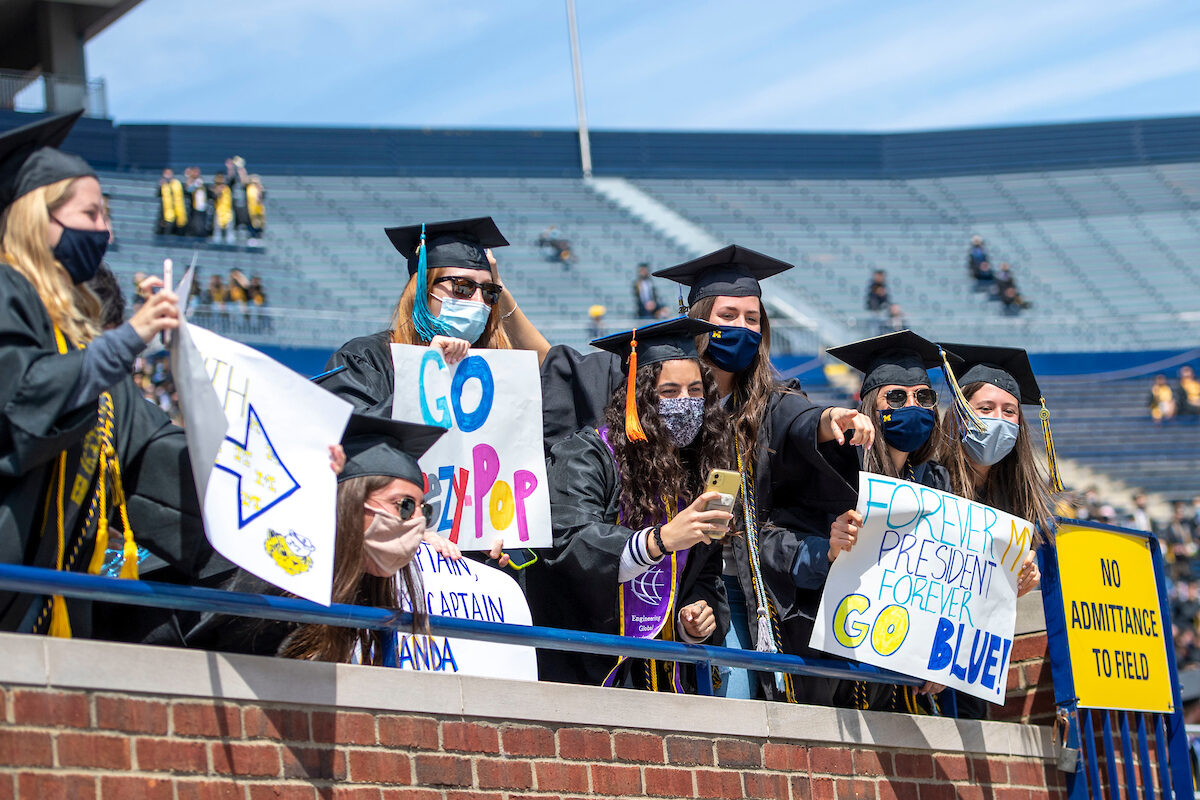From anguish to languish
Hey, I took a little break last month. Did you notice?
After more than a year of making Michigan Today from my house, I was feeling a bit unplugged. Not clinically depressed, just foggy and a little blue. We hear so much about the long-term physical implications of COVID-19, but rarely talk about the emotional toll it’s taking on us as a species. Even as we contemplate a potential return to “normalcy,” it’s difficult to rally the enthusiasm for the “again times.”
I recently ran a piece about U-M pschychologist Ethan Kross and his book, Chatter, about methods to silence the incessant negative self-talk that bounces around our brains. (You get really comfortable with that voice when it’s one of the few you hear on a regular basis.)
I followed Kross’ advice and curated a package of healthy daily rituals, from drinking green smoothies to planning for the future. I made a space to feel awe on a regular basis, to laugh at my dog, to take walks in nature. It helped a lot. And then I saw this New York Times piece: “There’s a name for the blah you’re feeling: It’s called languishing.”
Eureka!

Spring commencement at Michigan Stadium. (Image: Michigan Photography.) See more photos.
As a writer — and a reader — I guess I just needed to string a few letters together to understand this interminable, endless grayness hanging over me.
Laaaaanguishing. It’s the best onomatopoeia I’ve heard since “sizzle.” Writer Adam Grant explains it was the natural outgrowth of the collective grief — the “anguish” — we experienced at the onset of the pandemic. Just add the “l” and you’ve got a whole new feeling.
“Languishing is the neglected middle child of mental health,” he writes. “It’s the void between depression and flourishing — the absence of well-being. You don’t have symptoms of mental illness, but you’re not the picture of mental health either. You’re not functioning at full capacity. Languishing dulls your motivation, disrupts your ability to focus, and triples the odds that you’ll cut back on work. It appears to be more common than major depression — and in some ways it may be a bigger risk factor for mental illness.”
It triples the odds you’ll cut back on work??? Yikes! Has Adam Grant been spying on me? (He received his PhD from U-M, which I learned after publishing.)
Languish no more (well, at least not as much)

Stamps School students painted a street mural on Washington in front of Rackham prior to 2021 commencement. (Image: Michigan Photography.)
Well, we’re back, Adam. When the boss asked for volunteers to work at Michigan Commencement May 1, I jumped at the chance. I saw my co-workers in three dimensions! I saw graduates in caps festooned with creative designs. I saw the nearly empty Michigan Stadium on a glorious Saturday morning while the sound crew blasted the Beatles’ “Here Comes the Sun” and Joni Mitchell’s “Big Yellow Taxi.”
I took terrible videos of myself in the end zone to send to my Spartan friends. I stood in the tunnel and prayed to my Wolverine Dad who passed away in 2018. I chattered my head right off, engaging the security guards, the sound men, the Daily photographer. Civil rights attorney Bryan Stevenson brought tears to my eyes with his stirring keynote speech.
It. Was. Awesome.
I returned to my home office imbued with renewed energy: The University does exist! It’s not all in my head!
And then, just like that, seemingly out of nowhere, the CDC this week decided that vaccinated people could ditch the mask and start the gradual transition to life after/during/with COVID-19.
Just my luck. Right when I figured out how to languish like pro.
(Lead image by Michigan Photography: Friends of 2021 class speaker Amanda Kaplan, BA, celebrate her achievement as a graduate of the Ford School of Public Policy.)




Melanie Barnett - 1991, 1983
Hi Deborah! Thank you for your personal story here. So many of us have been feeling this, and it helps to hear others’ experience. Also helps to able to name it (thank you, Michigan Ross PhD Adam Grant) and to learn some new strategies for dealing with is (thank you, Michigan professor Ethan Kross). The resources we have at, and from, the University of Michigan are pretty darn impressive. I still miss you at Ross, but am happy to see you along the way through Michigan Today. –Melanie
Reply
Deborah Holdship
Thank you, Melanie! I did not realize Adam was a PhD grad! That’s amazing. Michigan is everywhere, saving everyone!
Reply
Monica ‘Mountain Monica’ Fedrigo - 2001
Haha this is wonderful! ‘The university does exist’! Thank you for sharing, and I also am VERY excited to be around people again!
Reply